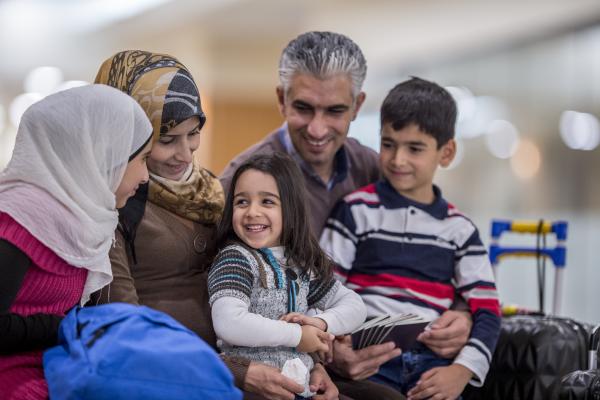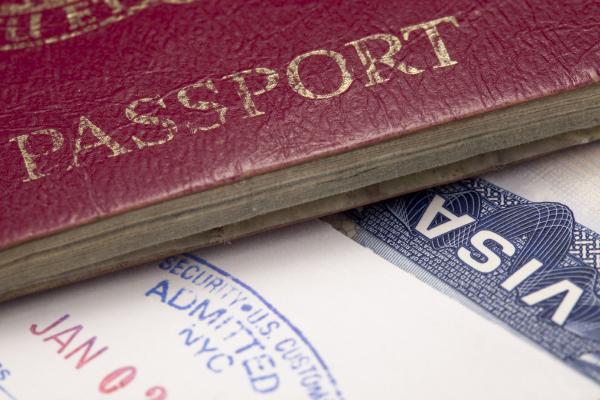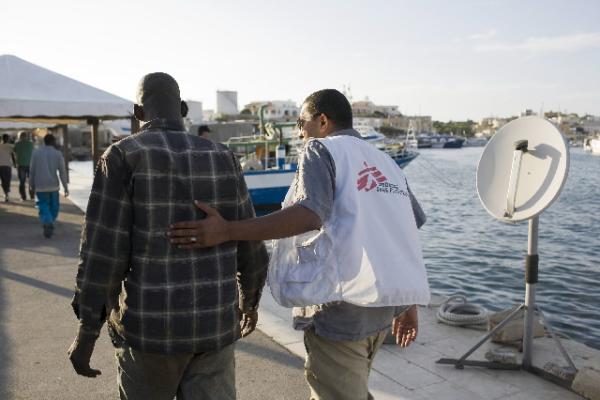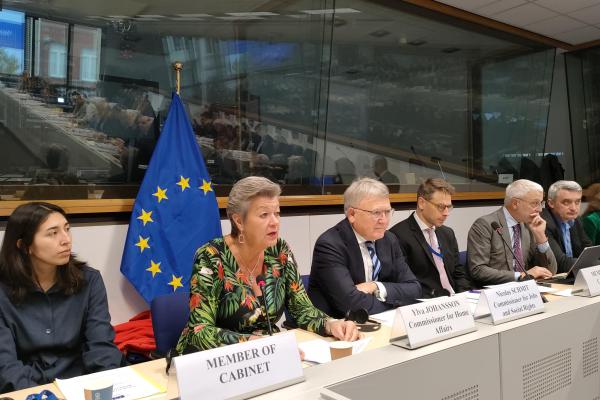Legal migration, resettlement and integration are key elements of the EU's comprehensive and balanced approach to migration and asylum. These components benefit not only migrants but also host societies, EU countries and non-EU countries.
Most migrants entering the EU come through legal migration channels, such as work, study, family reunification, or resettlement. In 2022, 5.1 million immigrants from non-EU countries entered the EU.
Legal migration offers individuals a chance to improve their personal circumstances and helps host EU countries address labour market needs. It is an investment in the economy and society, supporting the EU's green and digital transition, and contributing to more cohesive and resilient European societies.
Organising legal migration better
The EU has established a framework for legal migration, taking into account the importance of integration in host societies. This EU framework includes harmonised rules for the entry and residence of specific categories of non-EU nationals, such as highly qualified workers (subject to the EU Blue Card Directive), seasonal workers and intra-corporate transferees.
The EU legal migration framework also regulates:
- the admission conditions and rights of students and researchers from non-EU countries,
- the right to family reunification,
- the conditions and procedures for non-EU nationals to obtain a long-term residence permit.
The EU legislation also lays down a single procedure and a Single Permit, which combines work and residence authorisation for non-EU workers admitted under national schemes of EU Member States.
Another key aspect of the EU’s legal migration framework is labour mobility schemes with non-EU countries. Pilot projects have shown that, with targeted support, the EU can help Member States implement activities that meet the needs of employers, while reinforcing human capital development in partner countries.
Revamping the EU’s legal migration policy
On 27 April 2022, the Commission presented a Communication setting out its approach to a renewed and sustainable EU legal migration framework, attracting the necessary skills and talent to address labour shortages in the EU. On the same day, the Commission also presented proposals to modernise the Long-term residents Directive and the Single Permit Directive. The main objectives of these recasts are to:
- reduce costs and the administrative burden for employers,
- prevent labour exploitation,
- support further integration and intra-EU mobility of non-EU nationals already residing and working in the EU.
The recast of the Single Permit Directive was adopted on 24 April 2024.
The EU Talent Pool
On 15 November 2023, the Commission presented a proposal for an EU Talent Pool Regulation, as part of the Skills and Talent Mobility package. This package aims to make the EU more attractive to external talent and facilitate mobility within the EU.
This Talent Pool will be the EU's first-ever platform to facilitate international recruitment, offering opportunities for non-EU jobseekers interested in working in EU-wide shortage occupations across all skill levels. The platform will allow interested Member States to participate on a voluntary basis.
Non-EU jobseekers and employers can register their profiles and job vacancies on the platform. To simplify matching, the EU Talent Pool will feature tools that help jobseekers and employers identify each other. Clear and transparent information on relevant rules in participating Member States will also be available, streamlining the recruitment process.
The EU Talent Pool proposal is supported by an accompanying Impact Assessment.
The Russian war of aggression against Ukraine created an urgent need to facilitate the access to the EU labour market for beneficiaries of temporary protection. In response, the Commission launched the EU Talent Pool Pilot in October 2022 to help people fleeing the conflict. This pilot aims to support and facilitate the integration of displaced persons into the labour market, making the most of their skills.
EU immigration Portal
Launched in November 2011, the EU Immigration Portal provides hands-on information for non-EU nationals interested in moving to the EU. The website also targets migrants who are already in the EU and wish to move from one EU Member State to another. It provides specific, practical information about procedures in all 27 EU countries for each category of migrant.
Resettlement and other pathways to protection
Resettlement and humanitarian admission involve the transfer of non-EU nationals in need of international protection from a non-EU country where they have been displaced to an EU country that offers them protection. These are safe and legal alternatives to irregular journeys and demonstrate European solidarity with non-EU countries hosting large numbers of people fleeing war or persecution.
Resettlement is based on referrals from the UN Refugee Agency (UNHCR). Humanitarian admission is based on referrals from the European Union Agency for Asylum (EUAA), the UNHCR, or other relevant international bodies, following a request by Member States.
In May 2024, as part of the Pact on Migration and Asylum, the co-legislator adopted the Union Resettlement and Humanitarian Admission Framework Regulation. The Regulation aims to create a more predictable and reliable framework. In line with the Team Europe spirit, the Regulation supports the increase of EU's contributions to international resettlement and humanitarian admission initiatives, and strengthens partnerships with third countries in regions hosting a large number of people in need of durable solutions.
Integration
As highlighted in the Pact on Migration and Asylum, a successful integration and inclusion policy is crucial to a well-managed and effective migration and asylum policy. It is also essential for social cohesion and for a dynamic economy that benefits everyone.
The EU supports Member States through funding, guidance and partnerships, while national governments remain primarily responsible for developing and implementing social policies.
Find out more on the European Website on Integration.

Labour immigration has a key role to play in driving economic development in the long term and in addressing current and future demographic challenges in the EU.

Students and researchers Directive sets the conditions of admission and rights of non-EU nationals for the purposes of research, studies, training and voluntary service.

As emphasised in the Pact on Migration and Asylum, a successful integration and inclusion policy is an essential part of a well-managed and effective migration and asylum policy.

Family reunification Directive establishes the rules under which non-EU nationals can bring their family members to the EU country in which they are legally residing.

The Long-Term Residents Directive on the status of non-EU nationals who are long-term residents sets the conditions under which non-EU nationals can obtain the status of long-term residents.

Resettlement means the admission of non-EU nationals in need of international protection from a non-EU country to which they have been displaced to an EU country where they are granted protection.
Seven EU Directives govern admission to and residence in the EU for non-EU migrants, and these laws cover a large part of the migrants arriving to or staying in the EU for work, study or to join family members.
The Talent Partnerships will enhance legal pathways to the EU, while engaging partner countries strategically on migration management.
The European Migration Forum (EMF) is a platform for dialogue between civil society organisations and European Institutions on topics related to immigration, asylum and integration.
Related news items

- News article
The EUAA has issued guidelines for an EU approach to community sponsorship, aiming to increase the number of admission places available to those in need of protection, while establishing minimum quality standards for the different phases of community sponsorship across the EU.
- 1 min read
- Policy
- Legal migration and Integration

- News article
Over the past three years, the Pilot project for business mobility between Belgium and Senegal has been connecting Senegalese and Belgian entrepreneurs, supporting 47 small to medium-sized businesses and contributing to the development of a sustainable Belgo-Senegalese economic partnership.
- 1 min read
- Policy
- Legal migration and Integration
- Country
- Belgium
- Senegal
- EU fund
- Asylum, migration and integration fund (AMIF)

- News article
On 10 January Commissioner for Home Affairs, Ylva Johansson, and Commissioner for Jobs and Social Rights, Nicolas Schmit, hosted the first meeting of the Labour Migration Platform with representatives from Member States specialising in migration and employment policy
- 1 min read
- Policy
- Legal migration and Integration
- Work
